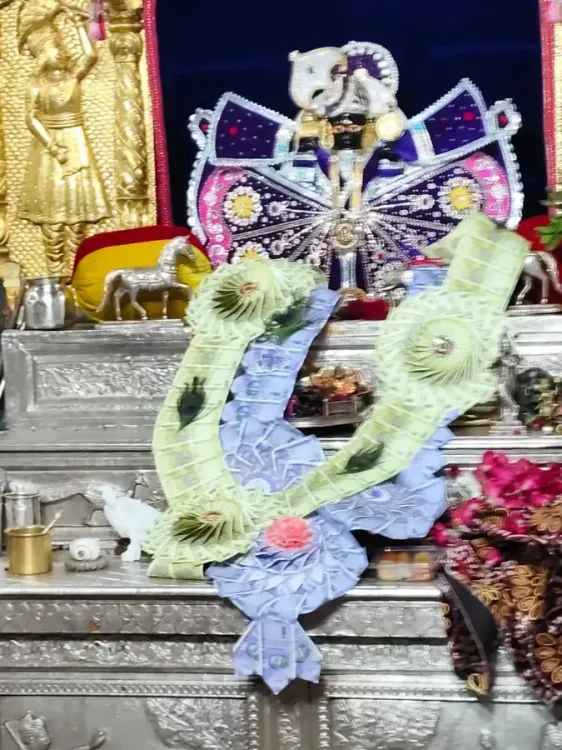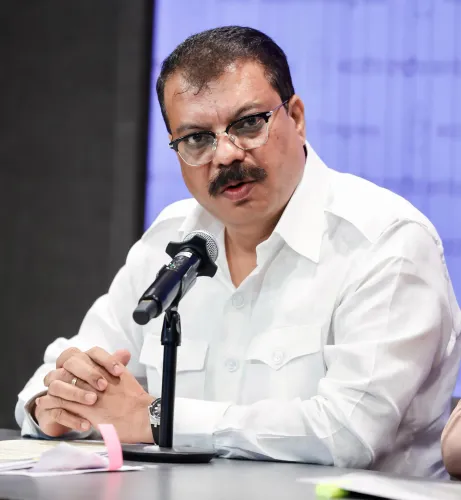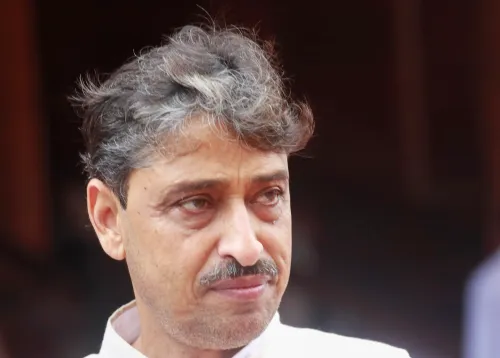Has the Rajasthan Court Nullified the Rs 18 Crore Development Proposal for Sanwaliya Seth Temple?

Synopsis
Key Takeaways
- Rajasthan Court declares Rs 18 crore development proposal void.
- Permanent injunction against Temple Board's fund allocation issued.
- Funds must be returned within two months.
- Concerns raised over misuse of temple funds for non-religious purposes.
- Future temple projects face uncertainty due to legal constraints.
Jaipur, Nov 19 (NationPress) In a pivotal ruling, the Mandphia Civil Court of Rajasthan has deemed the April 12, 2018, proposal by the Sanwaliya Seth Temple Board to allocate Rs 18 crore for the enhancement of the Matrikundiya pilgrimage site as null and void.
The court has also instituted a permanent injunction, preventing the Chairman and CEO of the Temple Board from disbursing or utilizing any funds from the temple’s treasury for the proposed initiative, asserting that this action breached Section 28 of the Sanwaliya Temple Board Act, 1992. The ruling stipulates that any funds already disbursed must be returned to the Temple Board’s account within two months.
A lawsuit was initiated in November 2018 by several petitioners, including Mandphia resident Madanlal Jain, against 49 individuals, which included the Temple Board's Chief Executive Officer and Chairman. The petitioners contended that the Sanwaliya Temple Board Act, established by the state government in 1992, was designed to ensure proper fund management for the temple’s welfare and religious undertakings.
The petitioners expressed alarm that funds from the temple’s treasury—earmarked for various temple-related projects—were being diverted for unrelated purposes. These funds were already allocated for infrastructure initiatives, including the construction of roads linking 16 nearby villages to the temple, accommodation for devotees, educational facilities, and the expansion of the temple complex. The estimated financial requirement for these projects ranges from Rs 2.5 crore to Rs 300 crore.
This case underscored multiple concerns, such as unauthorized projects and violations of the Temple Act, alongside the misuse of funds. Despite ongoing public welfare projects, the Temple Board approved financial support for external government initiatives in areas beyond its jurisdiction.
The Devasthan Department had also raised concerns, asserting that these projects fell outside the scope of the Temple Board Act. The petitioners maintained that the approval to release Rs 18 crore for the development of the Matrikundiya pilgrimage site was a blatant infringement of the Temple Board Act, emphasizing that such funds should solely be allocated for activities directly associated with the temple’s religious functions and designated jurisdiction. The petitioners accused the Temple Board of misappropriating temple funds for government projects outside of its mandate.
Presiding Officer Vikas Kumar Agarwal delivered the ruling on November 17, following comprehensive hearings. The court ruled the Rs 18 crore development proposal null and void, asserting that it contravened the stipulations of the Temple Board Act.
This ruling effectively bars the Sanwaliya Temple Board’s President and CEO from earmarking any additional funds for non-religious purposes.
The court also mandated that any funds already allocated as part of this proposal be reinstated to the temple's treasury within two months.
This ruling marks a crucial advancement in ensuring the proper management of temple funds and their compliance with the law. In related developments, the Sanwaliya Seth Temple Board has recently sanctioned a record budget of Rs 421 crore for various development projects aimed at enhancing facilities for pilgrims.
The upcoming projects are set to incorporate modern amenities and expanded infrastructure to cater to the increasing number of visitors. Nonetheless, the court’s ruling casts uncertainty over the temple’s expansion plans, particularly regarding the Matrikundiya project, which now faces considerable delays due to legal constraints.
The Sanwaliya Seth Temple, drawing millions of devotees, must ensure its funds are utilized in alignment with its religious and cultural mission, as mandated by law, according to officials.







